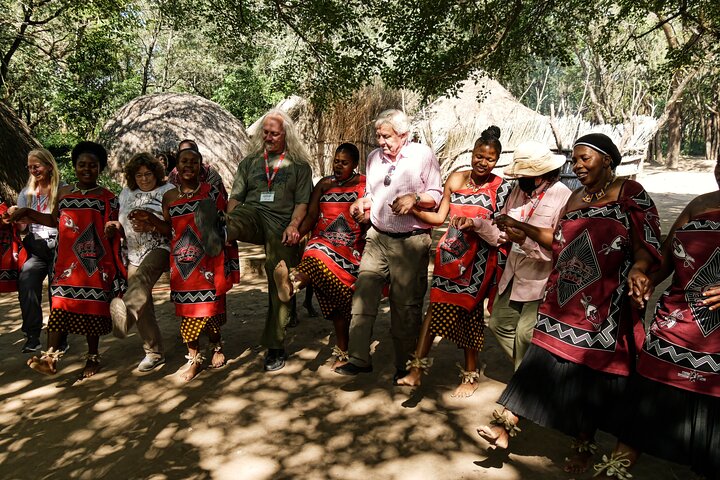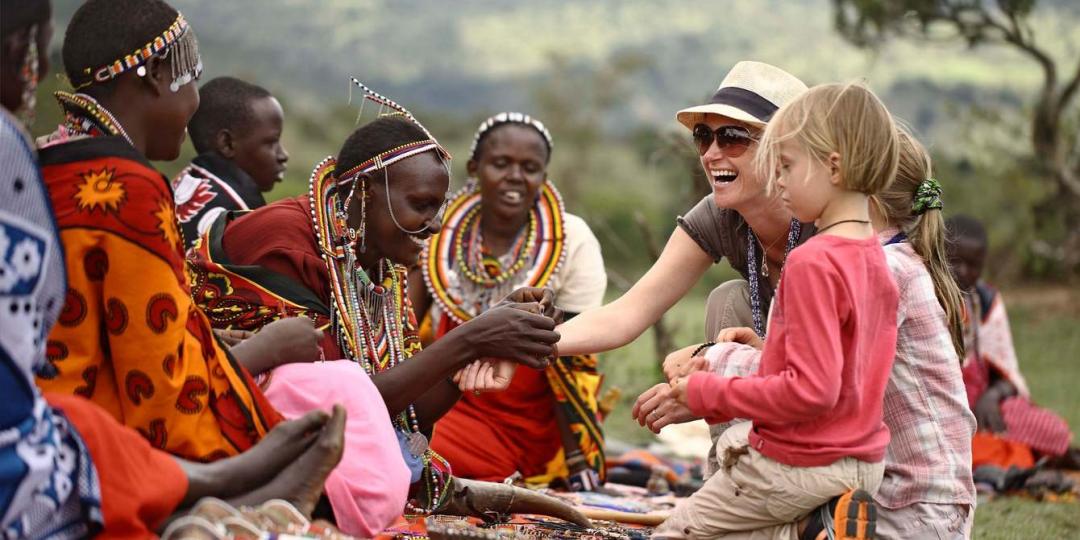Living Traditions – Experience Authentic Africa Cultural Tours | WildHorn Africa
There are places in the world where culture is not a museum exhibit or a memory—it is a living force that breathes, sings, and dances through daily life. That place is Africa, where every dawn is greeted by rhythm, every meal is prepared with meaning, and every story is told not for nostalgia but for continuity. To travel here is to witness culture not as history, but as heartbeat. The essence of Africa cultural tours lies in this living tradition—a sacred thread connecting past and present, weaving people, land, and spirit into one enduring tapestry.
For those who long to experience more than the spectacle of wildlife safaris or the comfort of luxury lodges, Africa’s cultural journeys offer something far deeper. They open doors into communities where rituals still shape the calendar, where songs carry ancient wisdom, and where craftsmanship transforms survival into art. These are the journeys that reveal the soul of Africa—the continent that continues to teach the world that tradition is not something left behind, but something lived every day.
This is not the Africa seen through postcards. It is an Africa of connection, of emotion, and of continuity—a place where visitors are not spectators but participants in the rhythm of a living heritage.
The Spirit of Living Traditions
To understand Africa’s living traditions is to understand its essence. Across the continent, culture is not frozen in time but fluid and evolving, molded by generations yet rooted in ancestry. Every community, from the pastoral tribes of East Africa to the fisherfolk of West Africa and the desert dwellers of the south, carries a unique expression of identity—an unbroken chain of belief, practice, and artistry.
Tradition here is not bound by ceremony alone. It is found in how families greet the morning, in how elders bless the harvest, and in how young people learn through observation rather than instruction. It exists in the daily rituals of respect and resilience, in songs that recount migrations, and in proverbs that hold the moral fabric of society.
Africa cultural tours allow travelers to step inside this continuum—to listen to the pulse of community, to see the sacred woven into the ordinary. They offer a window into how culture is lived, not merely remembered. From the rhythmic pounding of millet under a thatched roof to the joyful ululations of wedding songs, every moment holds layers of meaning.
Culture in Africa is not a performance; it is participation.
Rituals and Rhythms of Everyday Life
In the villages and towns that stretch across the African landscape, every day unfolds with ritual and rhythm. These are not rituals confined to temples or festivals, but woven seamlessly into the act of living. The day begins with the rising sun, when prayers are whispered to ancestors and the smell of woodsmoke fills the air. Morning is not simply the start of labor but the reaffirmation of life’s sacred cycle.
As women sweep the compounds, they do so with intention, not only to clean but to honor order and harmony. Men prepare for the fields or the hunt, guided by ancestral practices that dictate when and how to plant, harvest, or fish. Children follow their elders, learning through mimicry and play.
Midday brings communal gathering—a moment for laughter, conversation, and shared sustenance. Even the preparation of food is a cultural act. Grinding grain, roasting maize, or brewing traditional beer are more than chores—they are ceremonies of connection. Each motion carries stories of heritage, recipes perfected over generations, and lessons about patience, gratitude, and togetherness.
As the day ends, the community gathers again under the soft glow of firelight. Stories rise into the night air, songs echo through the plains, and dances begin—not for entertainment but as expressions of identity and unity. It is here that visitors begin to understand that Africa’s greatest art form is life itself, lived in rhythm with the natural and spiritual worlds.
The Meaning Behind Music and Dance
Music and dance form the living language of Africa. They are not just artistic expressions but the mediums through which communities communicate, remember, and heal. Every region, every tribe, every village holds its own soundscape—its own rhythm that mirrors the heartbeat of its people.
The drum is central to this language. Its beat calls people to gather, celebrates harvests, and honors the departed. Its rhythms speak in patterns, each variation carrying meaning that only the initiated can fully decode. The drum is the voice of community, uniting hearts and generations.
Dance, in turn, transforms music into motion. Each movement tells a story—of love, war, fertility, or joy. The steps of a Maasai warrior’s jump, the slow grace of a Xhosa wedding dance, or the hypnotic spin of a Rwandan Intore dancer are all chapters in the narrative of a people.
For travelers joining in these dances during Africa cultural tours, there is a moment of realization: culture here is not something to be watched from afar. It demands participation. To move, to sing, to clap along is to step into communion with history, spirit, and self.
 Language and Storytelling: The Memory of the People
Language and Storytelling: The Memory of the People
Language is the soul of a culture, and in Africa, it is also the keeper of wisdom. The continent’s thousands of languages each carry a worldview—unique expressions of thought, humor, and philosophy. In communities where writing came late, oral storytelling became the heartbeat of memory.
Evening storytelling sessions are among the most profound experiences a traveler can witness. Elders, seated around fires, become the living libraries of their people. They speak of ancestors, gods, and heroes—of creation, justice, and destiny. Their words are often punctuated by chants, riddles, or call-and-response songs, inviting listeners to engage rather than observe.
These tales, passed from one generation to another, serve multiple roles: they educate, entertain, and preserve. Through them, children learn morals, adults reflect on values, and societies reinforce their collective identity.
Travelers often find themselves entranced by the depth of this oral heritage. A story that begins with humor may end in revelation, teaching lessons about humanity, humility, and hope. Within these stories lies Africa’s oldest truth—that wisdom is not stored in books but lived through voices.
The Sacred and the Spiritual
Spirituality in Africa is not confined to religion; it is the framework of existence itself. The divine is present in every river, every tree, every gust of wind. The boundary between the physical and spiritual worlds is porous—ancestors are not gone, they are guardians.
Rituals mark the transitions of life: birth, initiation, marriage, and death. Each is conducted with reverence and precision, blending dance, song, sacrifice, and prayer. These ceremonies are not only personal milestones but communal affirmations of continuity.
Travelers who witness these rituals during Africa cultural tours are often struck by their beauty and solemnity. Whether it is a rainmaking ceremony in Zimbabwe, a naming ritual in Ghana, or an ancestral feast in Uganda, each act reveals a profound respect for the unseen forces that sustain life.
This spiritual consciousness shapes behavior and belief. It fosters gratitude for the earth, respect for elders, and humility before creation. It is what gives African life its grace—an understanding that to live is also to honor.
The Role of Women: Custodians of Culture
In nearly every corner of Africa, women stand as the custodians of tradition. Their roles, though diverse, share one central truth—they are the keepers of continuity. Through them, languages survive, songs endure, and customs remain unbroken.
From dawn to dusk, the African woman’s life is a symphony of strength and purpose. She tends the home, works the land, raises children, and participates in the community’s economy through trade and craft. Her labor is both physical and spiritual—an offering of love to her family and heritage.
Women are also the storytellers and teachers, shaping young minds with lessons of respect, patience, and integrity. They teach not through lecture but through example. Their songs, often sung during work or celebration, carry ancestral memory—lyrics that remind communities who they are and where they come from.
During Africa cultural tours, travelers often meet women’s cooperatives or community groups who share these aspects of life. From basket weaving in Rwanda to pottery making in Nigeria, from beadwork in Kenya to cloth dyeing in Mali, each encounter becomes an immersion into feminine artistry and resilience.
Their creativity is both aesthetic and symbolic. In every stitch, color, or pattern, there is meaning—whether fertility, unity, or protection. The African woman’s artistry is her language, her strength, and her legacy.
The Market as a Cultural Epicenter
Markets in Africa are not merely places of trade; they are centers of culture. Every week, communities converge to exchange goods, ideas, and news. The energy is palpable—a whirlwind of colors, scents, and sounds.
Here, travelers experience culture in motion. Stalls overflow with fruits, spices, fabrics, and crafts. Vendors call out prices with humor and pride. Negotiation is not conflict but conversation—an art that fosters connection.
Markets are also social spaces. They are where friendships are renewed, alliances made, and traditions reinforced. A visit to a local market during a cultural tour reveals more about a society than any museum could. It is where the diversity of Africa converges—where ancient practices coexist with modern innovation.
In every exchange, there is hospitality. A vendor may insist a visitor taste a fruit before purchase, or a weaver may explain the meaning of a pattern before sale. This is Africa’s generosity made tangible.
 Festivals: The Celebration of Heritage
Festivals: The Celebration of Heritage
If daily life represents the heartbeat of African culture, festivals are its soul unleashed. Across the continent, communities mark seasons, harvests, and historical events with exuberant celebration.
Each festival is unique, yet all share certain threads: vibrant dress, rhythmic music, communal feasting, and deep symbolism. The Ouidah Voodoo Festival in Benin celebrates spiritual heritage; Rwanda’s Kwita Izina honors the naming of newborn gorillas and the connection between people and nature; Ethiopia’s Timkat commemorates baptism with processions of color and devotion.
For travelers, attending these festivals is to witness Africa’s joy in its purest form. It is culture at its most alive—unfiltered, unapologetic, and breathtakingly beautiful. The experience blurs the line between audience and participant, reminding visitors that in Africa, celebration is not observed but shared.
Sustainability and Cultural Preservation
As Africa embraces tourism, the preservation of its living traditions has become both an opportunity and a responsibility. True cultural travel must protect authenticity, not exploit it.
Tour operators like WildHorn Africa have become leaders in sustainable, community-based tourism. Their approach centers on partnership: locals lead the experiences, set the narratives, and benefit directly from tourism income. This ensures that visitors encounter genuine culture, and communities gain empowerment, education, and pride.
Sustainability here is more than environmental care—it is cultural continuity. When a traveler pays to learn traditional dance, purchase local art, or stay in a village homestay, they are investing in preservation. They are ensuring that Africa’s living traditions remain vibrant for generations to come.
Responsible tourism becomes a circle of respect—where travelers gain wisdom, and locals gain opportunity.
The Emotional Power of Cultural Immersion
There is something transformative about Africa’s cultural tours. They strip away distance and difference, revealing what is universal in humanity. To share food cooked over fire, to listen to drums beneath stars, to learn greetings in a new tongue—these moments connect hearts across continents.
Many travelers describe a profound shift after such journeys. They return not with souvenirs but with perspective. The African way of life teaches patience, gratitude, and joy in simplicity. It reminds visitors that progress need not erase heritage, and that modernity can coexist with meaning.
In a world that often forgets its roots, Africa’s living traditions stand as a powerful reminder of what endures: family, faith, music, and community.
Step Into Africa’s Living Heritage with WildHorn Africa
To experience Africa cultural tours is to walk through time while standing in the present. It is to feel the heartbeat of a continent that has never stopped dancing, singing, and believing.
Here, culture is not preserved under glass—it is alive, inviting, and ever-evolving. It speaks through people who welcome strangers as family, through traditions that hold both history and hope. To travel through this Africa is to witness not only what has been, but what continues to be.
Every handshake, every song, every shared story reveals the truth of the continent’s power: its ability to remain timeless by living fully in the now.
Book your next Africa tour and cultural safari with WildHorn Africa, and become part of this story. Step into the rhythm of living traditions, where every experience is an encounter with the continent’s soul.









